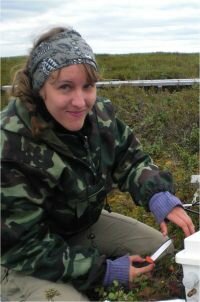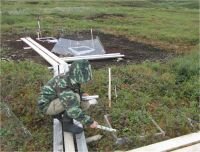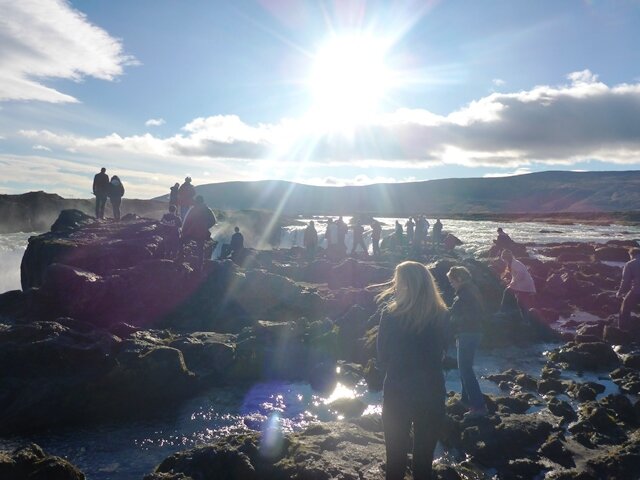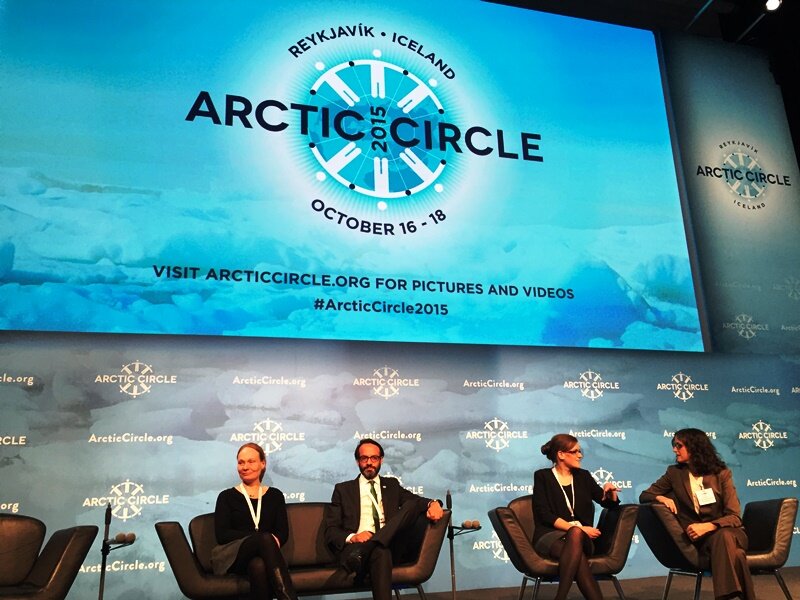PAGE21 Researcher Profiles: Carolina Voigt
- Details
- Created on Thursday, 07 February 2013 09:38
This weeks PAGE21 Young Researcher is Carolina Voigt from the University of Eastern Finland.
 Carolina at teh Seida field site, summer 2012. Photo by University of Eastern FinlandName
Carolina at teh Seida field site, summer 2012. Photo by University of Eastern FinlandName
Carolina Voigt
Institution
University of Eastern FinlandNationality
GermanResearch Field
Investigating the effect of climate warming on CO2, N2O and CH4 flux dynamics and underlying processes in subarctic tundra ecosystemsWhat is the current challenge within this topic?
Peatlands, especially those located in the highly sensitive arctic and subarctic latitudes, are known to play a major role in the global carbon cycle. Predicted climatic changes – entailing an increase in near-surface temperature and a change in precipitation patterns – will most likely have a serious yet uncertain impact on these ecosystems. Higher temperatures in combination with increasing thawing-depth as well as changes in the site-specific hydrologic regime will result in drastic alterations of the structure and function of these "bionetworks". Due to the complex nature of those ecosystems and interactions between various internal processes, many aspects remain unclear. Carolina working with flux plots peat circle, photo: University of Eastern FinlandHow are you affiliated with the PAGE21 project / what parts of your research will be a direct input to PAGE21?
Carolina working with flux plots peat circle, photo: University of Eastern FinlandHow are you affiliated with the PAGE21 project / what parts of your research will be a direct input to PAGE21?
My fieldwork is done in the PAGE21 research site Vorkuta/Seida in the Russian Arctic and is embedded in WP4 (acquisition of carbon, nitrogen and greenhouse gas flux data).
How did it happen that you became a researcher?
During my studies I did several internships at different research institutes. That is when I decided I would like to work in that field.Why do you like being a researcher / What do you like most in being a researcher?
I like scientific work, the internationality and having the opportunity to go to places that you would never visit in "normal life"How does a typical working day look like?
A typical working day in the field starts off right after an early breakfast with preparations of the measurements. Usually the measurements take the whole day and, depending on the size of the team in the field, different measurements are done at the same time. In general, working days in the field tend to be too short, because there are always things that need to be done. As there is quite tough physical work most of the days, people in the field are usually always hungry. And it is not a typical working day without the daily portion of pancakes ;-)What are your plans for the upcoming three / five years?
To finish my PhD thesis.Which expeditions will you participate this year and what is going to be their focus?
The summer 2013 will be spent in our research site Seida, where we will hopefully be able to acquire a full dataset for this year's growing season.What do you usually miss the most when being on the field? What has been your most interesting experience so far on expedition?
What I guess most of the people who go to our field site are missing the most a shower, especially after a hot working day with a lot of mosquitoes. The best experience in the field for me was probably the realization that despite some hardships you get accustomed to the everyday field conditions after only a short while. I for my part am already looking forward to return to Seida next summer.





